How to Choose the Right Absolute Ethanol for Different Applications?
- Addtime: 2025-08-20 / View: 778
Absolute Ethanol plays a vital role in a wide range of industrial applications, from pharmaceuticals and cosmetics to electronics and speciality chemicals. Its high purity makes it a valuable raw material and solvent in processes that demand consistency and precision.
For procurement professionals, choosing the right Absolute Ethanol is not simply about price—it’s about ensuring compliance, quality, and suitability for the intended application.
Application Requirements
Absolute Ethanol, also known as anhydrous ethanol, is a form of ethanol with a purity level of at least 99.5%, with water content reduced to a minimum. This characteristic makes it distinct from regular ethanol, which typically contains water. Due to its high purity, Absolute Ethanol is widely used in industries where even trace amounts of water can interfere with chemical reactions, reduce product quality, or compromise safety standards.
– Standard conditions:
For general industrial cleaning or simple solvent use, a basic grade of Absolute Ethanol may suffice.
In coating production lines, ethanol is used as a cleaning solvent for equipment surfaces and containers. In this case, cost-efficiency and bulk availability are often more important than ultra-high purity, as trace impurities will not compromise product quality.
– Pharmaceutical and medical applications:
These require pharmaceutical-grade Absolute Ethanol with strict compliance to pharmacopoeia standards (USP, EP, JP, etc.).
For instance, during the formulation of injectable drugs or vaccines, even minimal water content or organic residues can compromise safety and stability. Here, buyers must prioritise certified suppliers with transparent quality documentation and GMP-compliant production facilities.
– Electronics and precision manufacturing:
These industries demand ultra-high purity Absolute Ethanol to avoid contamination that can affect sensitive components. Any trace of water or impurities could damage semiconductor wafers or optical lenses, leading to costly production losses.
– Large-scale industrial production:
In this case, buyers may prioritise consistent supply, logistics reliability, and long-term cost efficiency over laboratory-grade purity.
For example, in biofuel blending facilities, thousands of liters of Absolute Ethanol are consumed daily. A supplier’s ability to deliver stable volumes at predictable costs often outweighs the need for pharmaceutical-level certification.
Analysis of Absolute Ethanol Characteristics
Core Performance Indicators
1. Purity Level – Defined as the concentration of ethanol relative to water or other impurities. The higher the purity, the better the solvent performance in high-precision industries.
2. Compliance and Certification – Meeting standards such as USP, EP, or industrial certifications ensures regulatory acceptance and product reliability.
3. Stability and Shelf Life – Indicates how long the ethanol maintains its properties under storage. This is critical for buyers managing large-scale inventory.
4. Supply Reliability – In sectors with high consumption, a stable and continuous supply chain directly affects production schedules.
Key Technical Features
1. Dehydration Process
The defining value of Absolute Ethanol lies in its “water-free” property. Different dehydration processes directly impact purity and efficiency. Common methods include molecular sieve dehydration and azeotropic distillation.
– Molecular sieves ensure extremely low residual water, making them ideal for the pharmaceutical or electronics industries, where moisture sensitivity is critical.
– Azeotropic distillation offers a lower cost, suitable for general industrial applications.
For buyers, this is not only about purity but also about batch-to-batch consistency and long-term stability. If your operations demand ultra-low water levels, prioritise suppliers that can certify molecular sieve processing.
2. Storage and Packaging
Absolute Ethanol requires strict storage conditions, and packaging choices influence both safety and usability. Typical supply forms include 200L drums, IBC tanks, and bulk delivery.
– For R&D laboratories, small-volume drums help minimise storage risks.
– For large-scale industrial users, IBCs or bulk supply optimise logistics and overall cost efficiency.
Buyers should ensure packaging is designed to prevent leakage, moisture ingress, and contamination, while also providing traceability across batches to reduce risks of process disruptions.
3. Compatibility
As a universal solvent, Absolute Ethanol is compatible with a wide range of chemicals. However, due to its corrosive and highly volatile nature, it must be stored in corrosion-resistant containers such as stainless steel or speciality alloy tanks.
Using ordinary steel containers risks rusting or impurity leaching, which can compromise product integrity. When evaluating suppliers, buyers should check not only the quality of packaging materials but also whether the supplier follows strict storage and handling standards.
4. Logistics Flexibility
As a classified hazardous chemical, Absolute Ethanol transportation requires certified safety protocols and professional handling. Suppliers must hold the necessary hazmat transport licenses and demonstrate capacity for domestic and cross-border distribution.
Application Examples
1. Pharmaceutical Industry – Injectable Drug Production
A global pharmaceutical company sourcing pharmaceutical-grade Absolute Ethanol relies on it as a solvent for injectable formulations. In this case, the supplier must provide not only high-purity ethanol compliant with USP and EP standards, but also consistent batch certification and COA documentation. A single deviation in purity could compromise regulatory approval, so buyers place priority on suppliers with a strong compliance track record.
2. Electronics Manufacturing – Semiconductor Cleaning Process
An electronics manufacturer in East Asia uses ultra-high purity Absolute Ethanol for wafer and circuit board cleaning. Even trace moisture or metal contamination could lead to defects in microchips. To ensure production yield, the company partners with suppliers offering molecular sieve dehydration ethanol and cleanroom-certified packaging. Here, logistics reliability is also crucial, as production runs on just-in-time supply models.
3. Cosmetics and Personal Care – Perfume Manufacturing
A European cosmetics brand incorporates Absolute Ethanol as the primary carrier solvent in premium perfumes. Consistency in fragrance formulation depends on ethanol with stable odor profile, low impurities, and compliance with IFRA standards. Procurement teams emphasize long-term supply contracts to maintain uniformity across product lines, ensuring that customers experience the same fragrance quality in every batch.
Tip: Consult the Experts
The selection of Absolute Ethanol can be complex, as each industry has unique requirements regarding purity, compliance, logistics, and cost-efficiency. Procurement decisions should not rely solely on catalogue specifications. Engaging with industry experts or reliable suppliers ensures you receive a tailored solution that aligns with your production standards and business goals.
To discuss your Absolute Ethanol sourcing needs or explore customised supply solutions, consult with our experts today.






